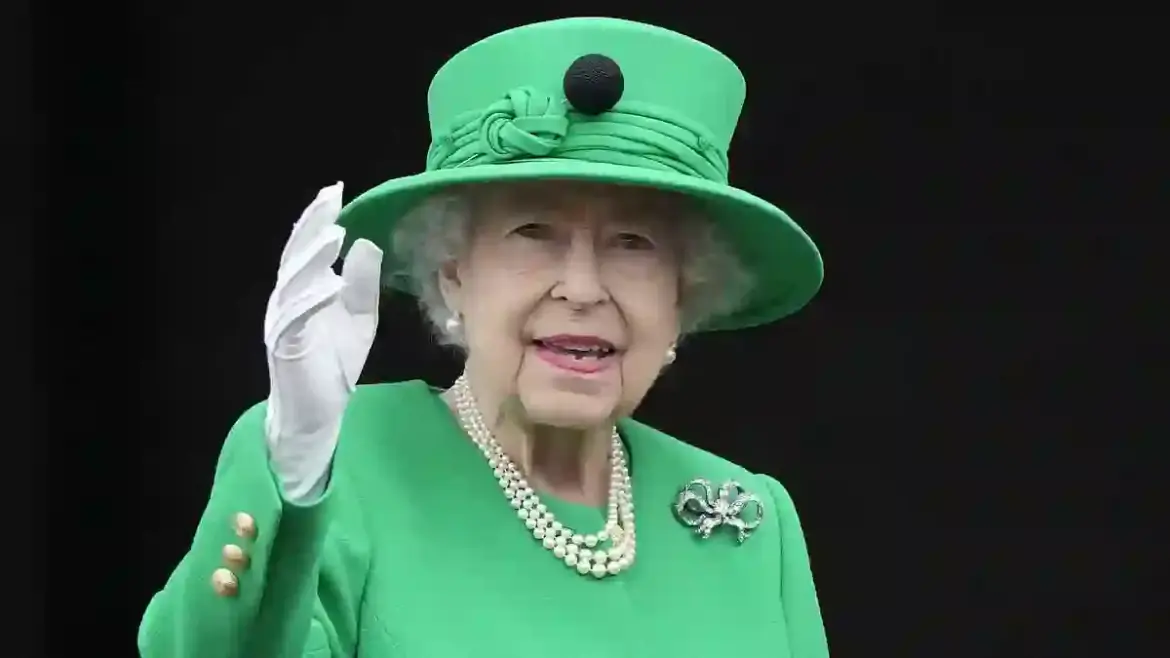The passing of Queen Elizabeth II in September 2022 marked the end of an era, but for those who worked closest to her, the memories remain vivid.
Former royal butler Paul Burrell, who served Her Majesty for over a decade, has shared deeply personal stories of her last days and the emotional farewell he experienced at Windsor.
What makes his account especially moving is the way it weaves together small, intimate moments—like a shared smile or a simple jar of jelly—with the monumental history of a monarch who reigned for 70 years.
A Smile That Changed Everything
Burrell recalls how his bond with the Queen began almost by accident.
At just 18 years old, working as a footman at Buckingham Palace, he broke a strict rule: he smiled at the Queen.
Rather than taking offence, she noticed and asked who he was.
Her remark—“No one ever smiles at me”—sparked the start of a working relationship that lasted 11 years and blossomed into trust and affection.
Saying Goodbye at Windsor
When the Queen died at 96, Burrell was invited to pay his final respects at St George’s Chapel in Windsor.
Accompanied by his husband, Graham, he entered through the same gates the Queen herself had often used.
Standing before the simple marble slab marking the resting place of the monarch and her family, Burrell was struck by its modesty—exactly what the Queen would have wanted.
He thanked her through tears for protecting him, guiding him, and teaching him lessons that shaped his life.
The Queen’s Last Battle
Behind the public image, the Queen had been quietly battling cancer, diagnosed in the summer of 2021.
She kept the illness private, confiding only in a small circle of trusted staff.
Her determination to live long enough to see her Platinum Jubilee showed her grit—she gave up her favourite gin and cocktails, swapped them for juices, and endured blood transfusions to keep going.
Despite fragile health, she wanted to rule until the very end.
The idea of a regency horrified her. She clung to routine, even when meals had to be served on trays in her room.
A Love Story with Prince Philip
Burrell describes the Queen and Prince Philip’s relationship as a true love story.
They ate their meals together, shared private jokes, and exchanged affectionate notes. He called her “sweetie pie” or even “cabbage.”
When Philip died in 2021, she insisted his coffin remain close to her inside Windsor Castle.
Each evening, she would walk alone to bid him goodnight. Their bond, forged over 74 years, gave her strength—yet his loss left her diminished.
Balmoral and the Family Divide
The Queen’s final hours unfolded at Balmoral, her beloved Scottish retreat.
While Princess Anne and Prince Charles were nearby, other family members had to fly in from London.
Prince Harry’s absence on the family plane created tensions.
His wife, Meghan Markle, was not welcomed at Balmoral, with senior royals wanting the farewell to remain a private family moment.
Even Catherine, Princess of Wales, stayed back in Windsor with her children to underline the message.
Harry arrived late, to what Burrell describes as a frosty reception.
The atmosphere at Balmoral was “like an iceberg,” a stark reminder of the family divisions that had grown since “Megxit.”
A Changed Charles
For King Charles, his mother’s death was both heartbreaking and transformative.
He entered Balmoral as a son, bowed in prayer at her bedside, and left as a king—aware of the heavy responsibility now resting on his shoulders.
Burrell notes that even though Charles expected this moment, the reality left him shaken, his grief laid bare.
The Frozen Windsors
Burrell is frank about the royal family’s survival instinct: when someone doesn’t toe the line, they are frozen out.
He believes Harry felt this coldness more than ever that night, leaving Balmoral early the next morning with little acknowledgment from his relatives.
Though Burrell feels sympathy for Harry, he believes the Duke of Sussex may one day return to England if his marriage falters.
Whether William would welcome him back, however, is another matter.
Andrew Without His Protector
The Queen’s passing also leaves Prince Andrew vulnerable.
Known as her “favourite son,” he often relied on her for financial and personal support.
Now, with Charles and William at the helm, his future within the monarchy looks bleak.
Burrell is clear: William sees Andrew as a liability and will likely refuse to indulge him once he becomes king.
Dogs, Fergie, and Small Comforts
Even in her last years, the Queen found joy in her corgis, though she had planned not to take on more.
Sarah Ferguson and Prince Andrew gifted her two puppies during lockdown—despite her protests.
After her death, those dogs remained with Fergie and Andrew at Royal Lodge.
There were also lighter details: the Queen’s dislike of garlic, her fondness for simple meals, and her habit of carrying a jar of quince jelly on her travels, a gift from Lady Tollemache.
Wherever she was in the world, that jar appeared at tea until it was finished.
Looking Ahead to the Next Generation
Burrell believes Elizabeth II will be remembered as the last of the great monarchs, steeped in tradition and ceremony.
For William, the future king, the challenge will be different.
He is expected to strip away pomp and become more of a “people’s king,” echoing his mother Diana’s influence.
Burrell, reflecting on the Queen’s life and legacy, says simply: “I hope I am here to cheer ‘Long live King William V.’”
